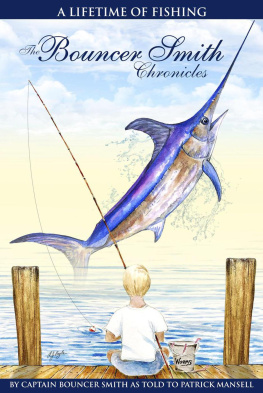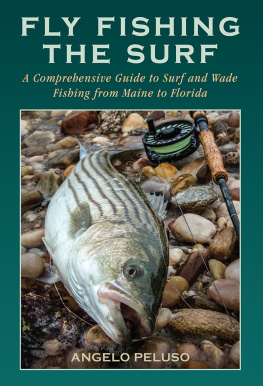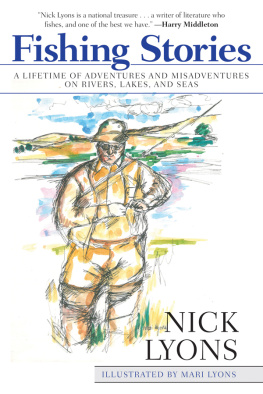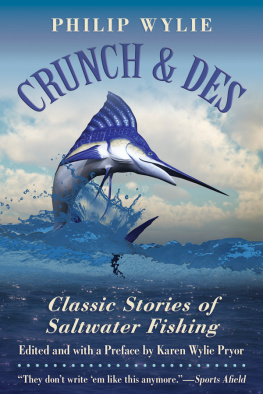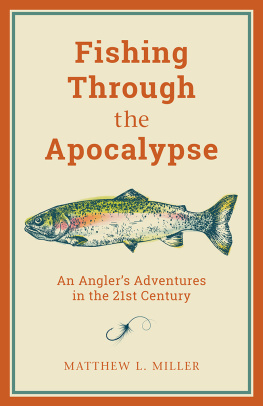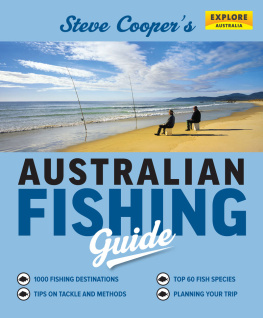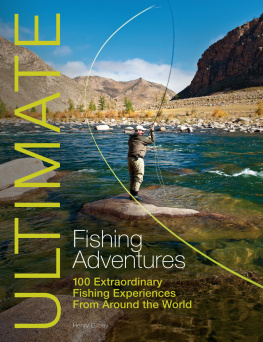The Bouncer Smith Chronicles
A Lifetime of Fishing
By
Captain Bouncer Smith
The Bouncer Smith Chronicles
A Lifetime of Fishing
BY
Captain Bouncer Smith
Copyright2019 by Randolph Bouncer
Smith and Patrick Mansell
All rights reserved. No part of this story
may be reproduced in whole or in part,
in any form, or by any means without the
express written permission of its authors
T his work is dedicated to all those who recognize that the oceans resources are limited and who fish with conservation in mind; for those who show respect for the great creatures we encounter, use discriminating gear, and support those organizations that work for more sustainable fisheries throughout the world.
Table of Contents
Preface
Introduction
Sharks
Ouch
Fish to Make a Difference
Tuna
Key Biscayne
Mahi Mahi
Swordfish
Bananas
Outdoor Writers and TV Show Hosts
Kids
Tarpon
Tail of the Whale
The Happy Hooker
Sailfish
Worst Days
Bob and Judy Lewis / Kite Fishing
Put the Camera Strap Around Your Neck
White Marlin on Orange Skirted Ballyhoo
Clients
Kingfish
Snook
Organizations
Trips
Wahoo
South Pass
Grouper
Wire Leaders - Jerry and Jesse Webb
Cubera Snappers
Light Tackle
Ralph Brown and Dusky
Sports Personalities
Teachers
My Family Story
Radar Range Observer
Corey Wayne Leonard
Rods Overboard
Gary Walker the Penn Man
Seasick
Porpoise
Wheel of Meat
Then and Now
Acknowledgements
H ave you heard the expression Dont try this at home? I could say that about some of the risky adventures described in this book. Dont venture out into insanely heavy seas. Dont let a lightning storm sneak up on you. Dont lock down the drag on your reel so that the only possible outcome is a broken line. Many of the most important lessons I have learned in my years as a sportfishing guide have been learned through experience; and some of them have been costly.
One lesson I want to pass on to the now and future generations is this: that was then, and this is now. In this book I describe the catching and killing of many wonderful, beautiful fish. Back in the day, in order to win a tournament, or to acquire a trophy mount, we had to take the fish into the boat and back to the dock. A great number of fish that were not eaten were harvested just the same. Many years ago there was little information about fish stocks and stressed out fisheries. Most stocks of fish were in such great abundance that such matters were not a concern.
But that has all changed. Commercial fishing interests have had a devastating effect on stocks of many fish species. Of particular concern are the fishing industries of a number of foreign flags. Some abusers of the ocean resources are terrible examples of blatant disregard for this precious commodity. The finning of one hundred million sharks per year, the slaughter of whales in the South Pacific, and the indiscriminate taking of by-catch through purse seine nets are raping our oceans.
But ocean conservation is everybodys responsibility. You cant tell me 50,000 registered pleasure boats in the South Florida area, with such a large percentage of those boats dragging hooks through the water, are not having an effect on fish stocks. Awareness of this problem, and action to reverse the trend, is of utmost importance. Today I wouldnt think of killing a sailfish or a tarpon. We dont need to take them for mounting as the modern technology in trophy mounts relies on no part of the fish to make a perfect replica. We dont eat them, so we dont kill them. More and more tournaments are conducted without the need for weighing, so the fish do not have to end up on the scales at the docks. And many more tournaments allow only circle hooks, thus increasing the odds of healthy releases.
I have learned a lot about ocean conservation over the years. We kill only what we will eat, and since I like my fish fresh, not frozen, that means we kill very few fish. And I do not sell fish to the restaurants or fish houses, so my take is miniscule.
There is an expression something to the effect of We are borrowing the earth from future generations, and I believe that. This planet belongs to our kids and their kids, so I feel it necessary to advocate for strong, and wisely crafted fishery management regulations.
When The Billfish Foundation, and other ocean advocacy groups went to work on finding a reasonable approach to a very weakened swordfish population, workable regulations were put in place. Over two decades the swordfish population has come back, and we now can target them conservatively without having to feel guilty about occasionally taking one.
That was then, and this is now. We have learned so much. We have realigned our priorities. I feel as carefree as ever about my approach to sportfishing, because I know that not only am I following a path of conservation as I set out everyday for new fishing adventures, but I am also setting an example by loudly advocating for fishery awareness, and an approach to catch and release that leaves most of the fish I catch for future generations to enjoy.
Tight lines.
Captain Bouncer Smith
M y fishing career started more than sixty years ago when offshore and backwater fishing was a family event with my parents, sisters, brother, and friends. Since the first time a rod twitched in my hands, I was hooked, pun intended. Living in South Florida since 1956, I have been exposed to more opportunities to catch magnificent fish than imaginable. There has never been any doubt that I would make a career out of fishing; it is the only thing I ever wanted to do. And now, after more than a half century as a fishing guide, I have never for a minute lost my enthusiasm. Of course some of my adventures have been very challenging, but the spirit is alive in me now as much as it was all those years ago.
Next page
